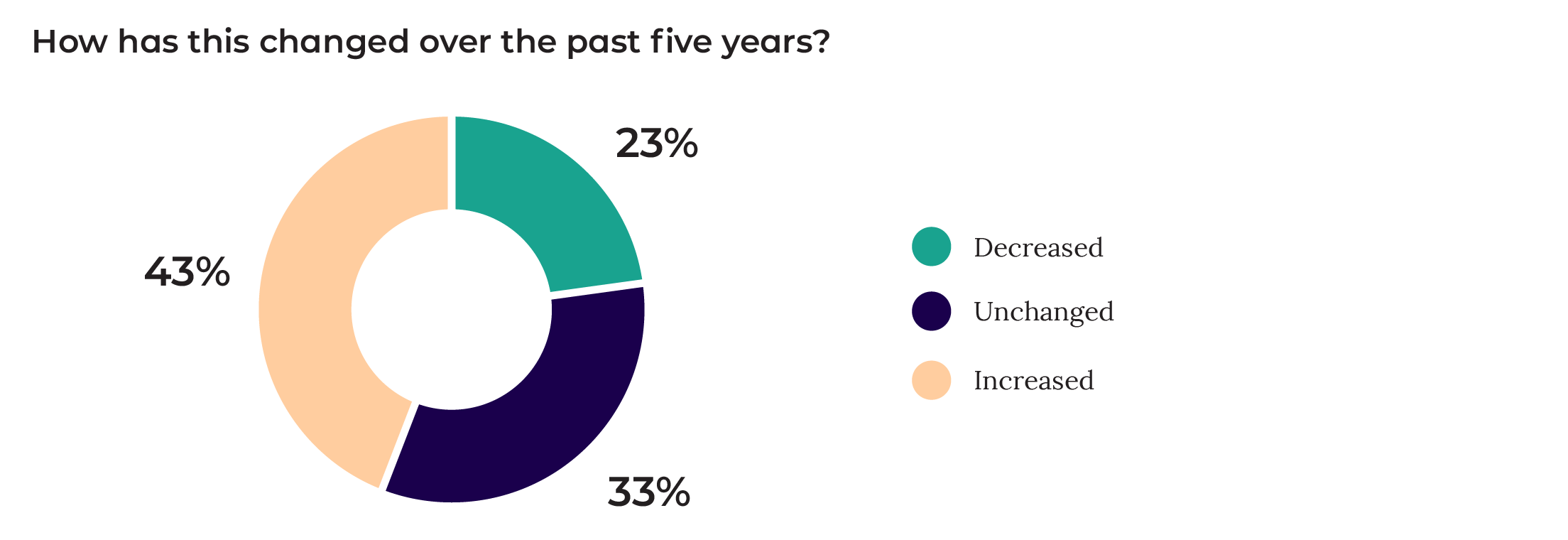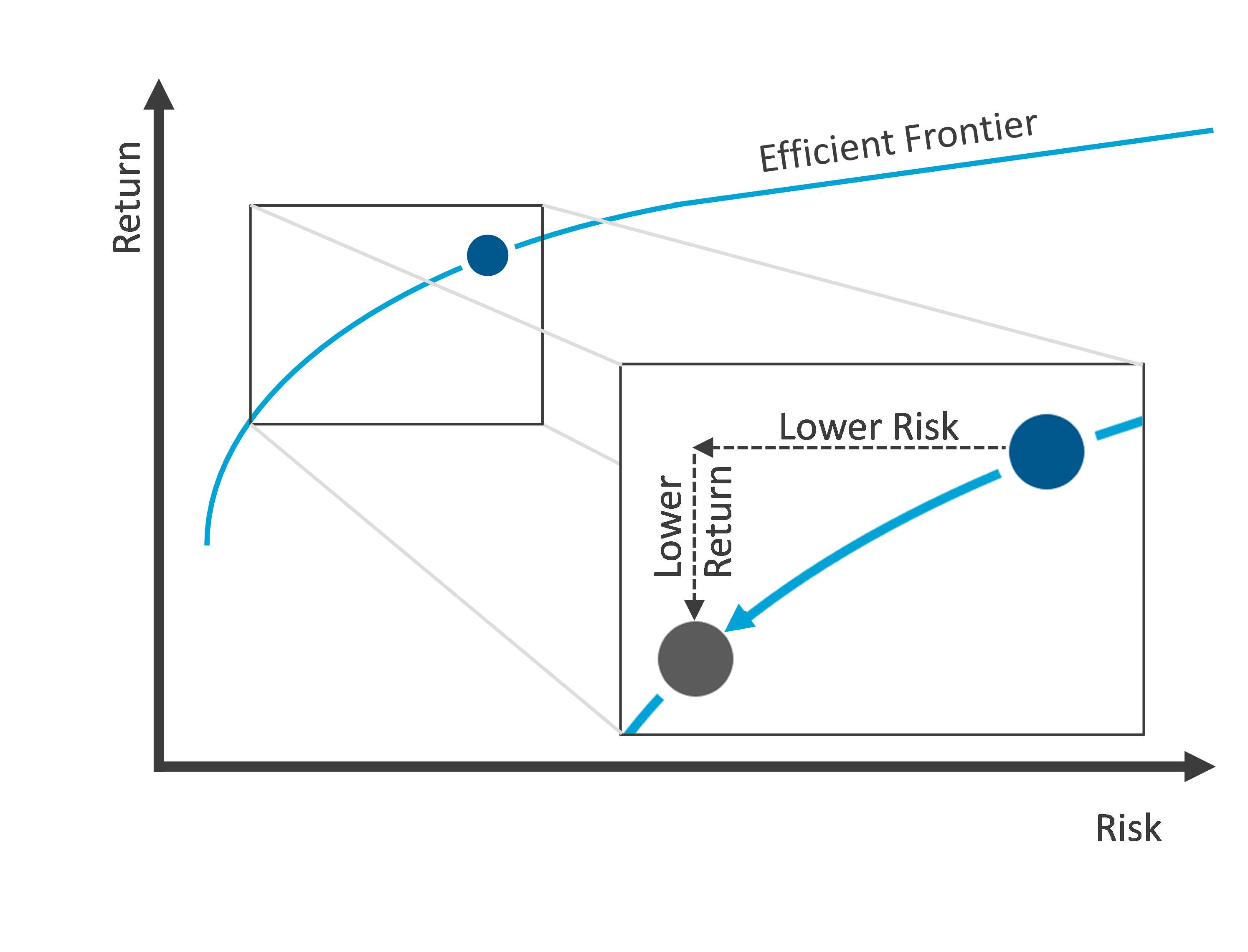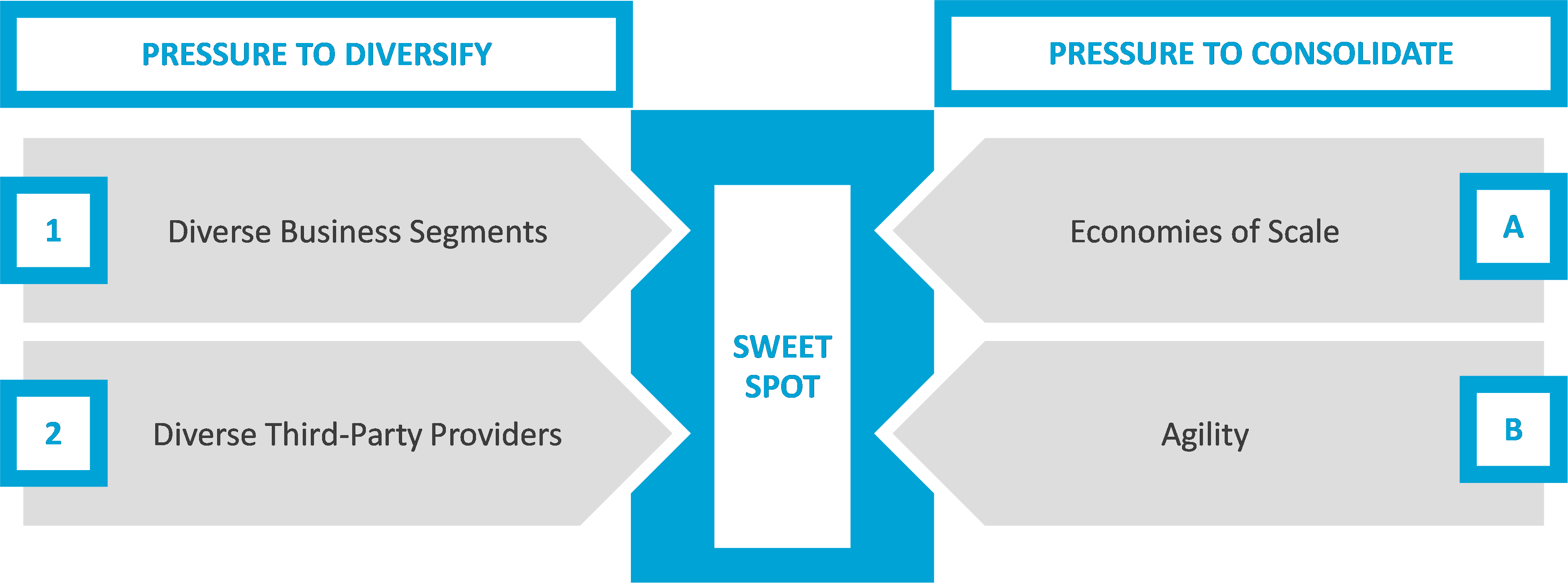Efficiency vs. Resiliency? Is This an ‘Either/Or’ for FCMs?
Originally featured in Futures & Options World
Do FCMs have to sacrifice efficiency for resiliency? Safety and success are not mutually exclusive but interdependent. In the realm of risk, reward, resiliency, and redundancy, each futures commission merchant (FCM) must find its own balance. Well-positioned FCMs find little benefit in overspending on safety, as it offers negligible benefits. Conversely, underspending on safety is also not advantageous, as any decrease in resiliency far outweighs minor savings. The critical question is: how can FCMs identify their sweet spot?
FCM’s technology and infrastructure play a significant role in meeting client needs and competitive. Yet reducing points of failure and staying one step ahead of cyber criminals are costly challenges.
To better respond to the needs of its FCM clients, Broadridge worked with Acuiti, a London-based management intelligence platform, to identify what FCMs see as their most pressing front-office technology challenges. The resulting report is based on surveys and interviews conducted with 38 front-office executives at FCM firms from around the world.
OMS overview
Almost half of the firms polled are looking to consolidate order management systems (OMS) to improve operational efficiency and reduce cost. For FCMs that are consolidating their OMS platforms, the challenge is to make sure this move isn’t at the expense of operational resiliency.
Currently, about a quarter of survey respondents only use one OMS, while most operate multiple systems. During the past five years FCMs were more likely to increase the number versus either decreasing or maintaining the number of order management systems.

The two Rs
The pressure is on for FCMs to improve operational resiliency. Our report clearly shows front-office executives identified operational resiliency as a key area for investment. Considering the twin concepts of risk and return, one must wonder: how much investment is required to achieve optimal results? Is more investment always better, or is there a point beyond which pouring in more capital is just waste?
It's clear that increasing expenditures on backup systems enhances resilience. Moreover, it’s understood that the first dollar spent on resilience reaps the greatest marginal benefit. While each additional dollar continues to bolster resilience, the incremental benefit diminishes with each expenditure (as per the law of diminishing marginal utility).
Drawing from Markowitz's Modern Portfolio Theory, obviously any FCM must generate returns commensurate with its level of risk — the greater the risk, the higher the returns expected by investors (think, efficient frontier). Investing in resilience diminishes the risk profile of an FCM, thereby reducing the returns it needs to produce. Thus, FCMs should continue to invest in resilience if required returns are higher than the costs to lower operational risk.

The recent introduction of DORA doesn’t change the arguments in favor of an sweet spot of resiliency for FCMs. Whether you believe DORA was desperately needed as the industry ignored the risks, or you see DORA creating useless bureaucracy as firms already took sensible steps out of self-interest, is beside the point. DORA will apply to all firms, and consequently will not have an direct impact on relative competitiveness or the existence of an optimal investment level.
Meet DORA
A new regulatory framework that addresses operational resilience will enter into force in Europe, beginning January 2025.
The Digital Operational Resilience Act (DORA) is aimed at strengthening firm’s cyber-hygiene and operational governance practices. That means DORA will significantly increase FCMs’ operational resilience responsibilities. Almost 40% of respondents to our FCM survey said that DORA was significantly influencing their decision making when it came to third-party order management solutions.
Finding your firm’s sweet spot
While Markowitz's modern portfolio theory serves as a useful framework for identifying the optimal balance between resilience and efficiency, it falls short of actionable guidance. Clearly, the specifics will vary across FCMs, but what are the business drivers that help in balancing resiliency with efficiency?

1. Diverse Business Segments
FCMs might use various order management systems, irrespective of any resilience concerns. Multiple systems may be needed to cater to distinct business segments. Certain order management systems are designed to support specific asset classes (e.g. equities, fixed income, ...), regions (e.g. EMEA, Americas, ...), or workflows (e.g. high touch, low touch, ...). The greater the diversity of the markets served, the more order management systems will be required.
OMS providers can tackle this issue by addressing various business requirements within a single well-structured and thought-out product.
2. Diverse Third-Party Providers
FCMs might worry about relying too heavily on a single OMS provider due to commercial or strategic considerations. While leveraging the same technology across the entire business can provide economies of scale, it also means that any potential flaw in the technology impacts the entire business.
OMS providers can alleviate these concerns by showing a readiness to integrate effectively with other systems. This allows FCMs to select specific components that fit their needs, while not having to sign for entire product suite. An open-for-integration policy (whether used or not by the FCM) is a credible signal itself that can mitigate the FCMs concerns.
A. Economies of Scale
Managing operations of multiple order management systems can pose significant challenges for support. Training staff to master various OMS becomes more challenging with every system added. Even straightforward tasks like stitching together the audit trail of an order becomes increasingly difficult with more systems. Thus, any OMS removed from the list of supported systems, lowers the burden for support staff.
B. Agility
The ability of FCMs to adapt to challenges, including regulations, client demands, or emerging technologies, is essential for long-term viability. Many practitioners still recall MiFID II drove OMS consolidation. With only one system to take care of, you had at least to solve each MiFID II change only once. Making multiple systems ready for MiFID II was a logistical and financial nightmare. Thus, if FCMs desire to improve their agility consolidation may be its answer.
Lesson Learned
Markowitz tells us that there is a sweet spot that gives FCMs the right balance between efficiency and resiliency. While modern portfolio theory fails to provide clear guidance on how to find it, some basic considerations and a series of well-placed questions enables any FCM to identify its unique drivers. When determining the number of OMS solution providers that offers the right balance of risk and reward, there is no magic number — just the number that’s right for your firm.
Let’s talk about what’s next for you
Our representatives and specialists are ready with the solutions you need to advance your business.
Want to speak with a sales representative?
| Table Heading | |
|---|---|
| +1 800 353 0103 | North America |
| +442075513000 | EMEA |
| +65 6438 1144 | APAC |
Thank you.
Your sales rep submission has been received. One of our sales representatives will contact you soon.
Want to speak with a sales representative?
| Table Heading | |
|---|---|
| +1 800 353 0103 | North America |
| +442075513000 | EMEA |
| +65 6438 1144 | APAC |


